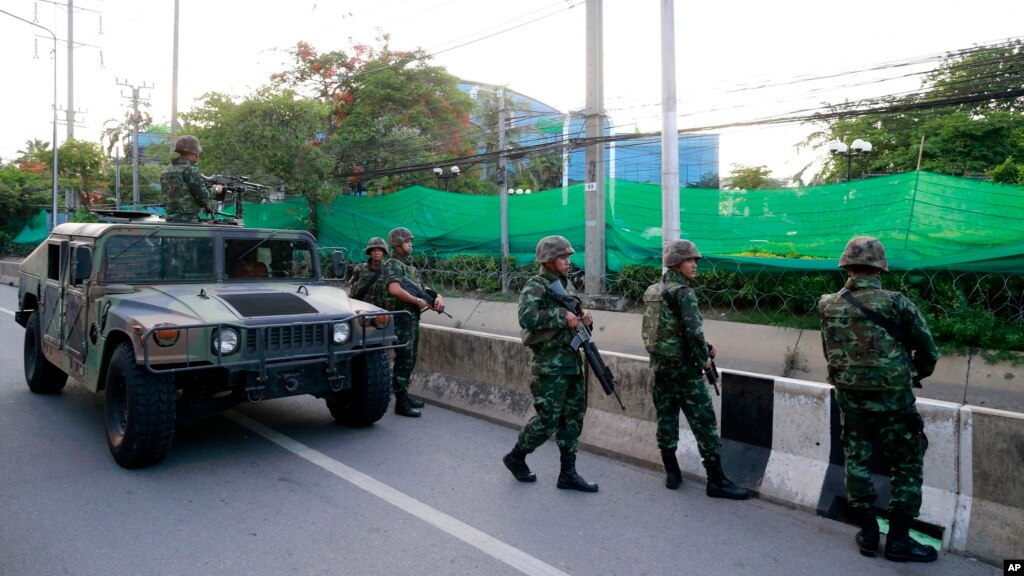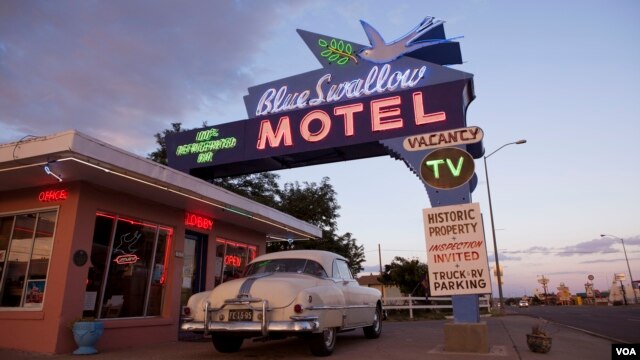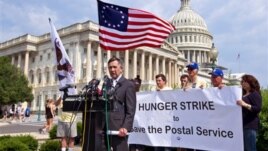
Thailand's military has declared martial law, saying it did so to keep "peace and order" after months of sometimes violent anti-government protests.
In a televised announcement early Tuesday, General Prayuth Chan-Ocha defended the move as necessary to resolve the country's political crisis.
"The Royal Thai Army intends to bring back peace and order to the beloved country of every Thai as soon as possible. We therefore ask every side and every group to stop their movement, in order to quickly enter the process and sustainably solve the country's problem. The provisions of the Martial Law Act 1914 will be announced. We are asking the general public not to panic and still carry on their duties and work normally," said Prayuth.
The army, which has staged 11 coups in the last 80 years, denies it is taking over. Several officials strongly denied a coup had taken place.
Justice Minister Chaikasem Nitisiri told reporters the interim government is still in charge and insists the army's move only relates to security, but it is unclear to what extent, if any, the transitional government was consulted in the decision to implement martial law.
In a statement, State Department spokeswoman Jen Psaki said the U.S. is "very concerned" and is monitoring the situation. She said the U.S. expects the Thai army to honor its commitment to make the martial law a "temporary action to prevent violence, and to not undermine democratic institutions."
Nearly 30 people have died since November, when protests erupted attempting to force Prime Minister Yingluck Shinawatra from power. The protests did not succeed, but Yingluck and some of her cabinet was ousted this month by the Constitutional Court on abuse of power charges.
The move has left Thailand without a fully functional government, and there have been concerns the army would step in to contain the violence.
Under the martial law declared Tuesday, the army says both pro- and anti-government protesters must remain in their designated demonstration sites.
In a televised statement, the army also warned against spreading news that can "negatively affect security." It ordered operations at several stations to be suspended.
Armed troops are deployed at intersections and have surrounded Bangkok's national police headquarters. However, the city appeared calm, with morning commuters driving to work, some snapping pictures of soldiers.
Bangkok resident Pojanee Sukmak said she does not expect violence to break out, as has happened in the past in Thailand.
"People are not the same any more. People won't let this happen. But I don't think they will do anything violent because if they do, it looks bad for them," said Pojanee.
Some rights groups are expressing concern at the declaration. Human Rights Watch said nationwide martial law was unnecessary to prevent violence. In a statement, Asia director Brad Adams said the "de facto coup" effectively renders the executive, legislative and judicial branches powerless and contains no safeguards against rights violations by the army.
Mark Thompson, director of Southeast Asia research at City University of Hong Kong, told VOA that the military is reluctant to label its actions as a coup because it fears this could stoke further unrest.
"It is semantics, but it's an important point, because the last time the military stepped in in 2006, it didn't work. And the military is afraid that if they call it a coup and actually remove the caretaker government officially, not de facto like they are doing now, that will provoke the Red Shirts and could lead the country closer to civil war," said Thompson.
This latest political crisis began in 2006, when Yingluck's brother, former prime minister Thaksin Shinawatra, was toppled by a military coup after being accused of corruption, abuse of power and disrespect for King Bhumibol Adulyadej.
Thaksin remains highly popular among the rural, and parties controlled by him have won every national election since 2001. The anti-government protesters, who are backed by the country's traditional elites, say they want to remove all traces of the Thaksin political machine from politics.



